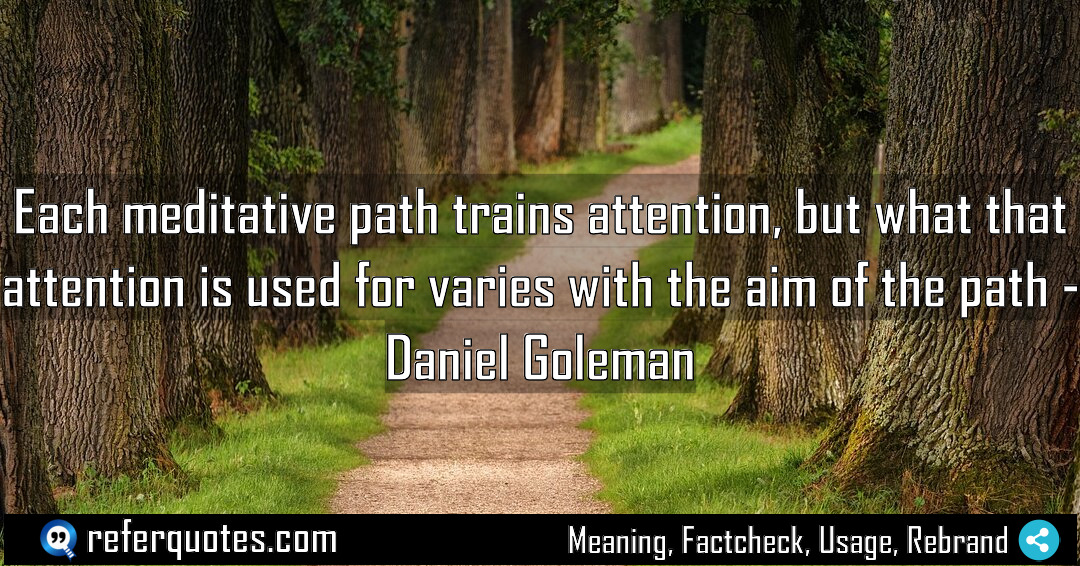Each meditative path trains attention, but what that attention is used for… that’s the real game-changer. It’s not about emptying your mind, but about learning to steer your focus with intention. This simple shift in understanding can completely transform your practice.
Share Image Quote:Table of Contents
Meaning
All meditation builds your “attention muscle,” but the *purpose* of that focus is what defines different traditions.
Explanation
Look, here’s the thing I’ve seen over and over. People think meditation is one thing. They sit down, try to “not think,” and get frustrated. What Goleman nails here is that the core skill—the fundamental workout—is always concentration. It’s like getting fit. But are you training for a marathon, to lift heavy weights, or for yoga flexibility? The basic fitness is the same, but the application is totally different.
So in one tradition, that laser-focused attention might be used to observe the breath to cultivate calm. In another, it’s used to deconstruct the sense of self by observing body sensations. The tool is the same. The *aim* is what changes everything. It’s a liberating idea because it means you can choose a practice that aligns with your actual goals, not just do a generic “meditation.”
Quote Summary
| Context | Attributes |
|---|---|
| Original Language | English (4111) |
| Category | Spiritual (249) |
| Topics | attention (68), discipline (263), path (5) |
| Literary Style | didactic (393) |
| Overall Quote Score | 66 (45) |
Origin & Factcheck
This is straight from Daniel Goleman’s 1988 book, The Meditative Mind: The Varieties of Meditative Experience. It’s a foundational text, written well before his big bestseller Emotional Intelligence. You sometimes see this idea paraphrased elsewhere, but the precise phrasing is Goleman’s.
Attribution Summary
| Context | Attributes |
|---|---|
| Author | Daniel Goleman (125) |
| Source Type | Book (4604) |
| Source/Book Name | The Meditative Mind: The Varieties of Meditative Experience (60) |
| Origin Timeperiod | Modern (866) |
| Original Language | English (4111) |
| Authenticity | Verified (4604) |
Author Bio
Daniel Goleman is a psychologist and bestselling author whose journalism at The New York Times brought brain and behavior science to a wide audience. He earned a BA from Amherst and a PhD in psychology from Harvard, and studied in India on a Harvard fellowship. Goleman’s research and writing helped mainstream emotional intelligence, leadership competencies, attention, and contemplative science. He co-founded CASEL and a leading research consortium on EI at work. The Daniel Goleman book list includes Emotional Intelligence, Working with Emotional Intelligence, Primal Leadership, Social Intelligence, Focus, and Altered Traits.
| Official Website
Where is this quotation located?
| Quotation | Each meditative path trains attention, but what that attention is used for varies with the aim of the path |
| Book Details | Publication Year/Date: 1977 (originally as The Varieties of Meditative Experience, revised 1988 as The Meditative Mind); ISBN: 9780874778335; Last Edition: Tarcher/Putnam 1988; Number of pages: 320. |
| Where is it? | Approximate page from 1988 edition, Chapter 1: The Meditative Traditions |
